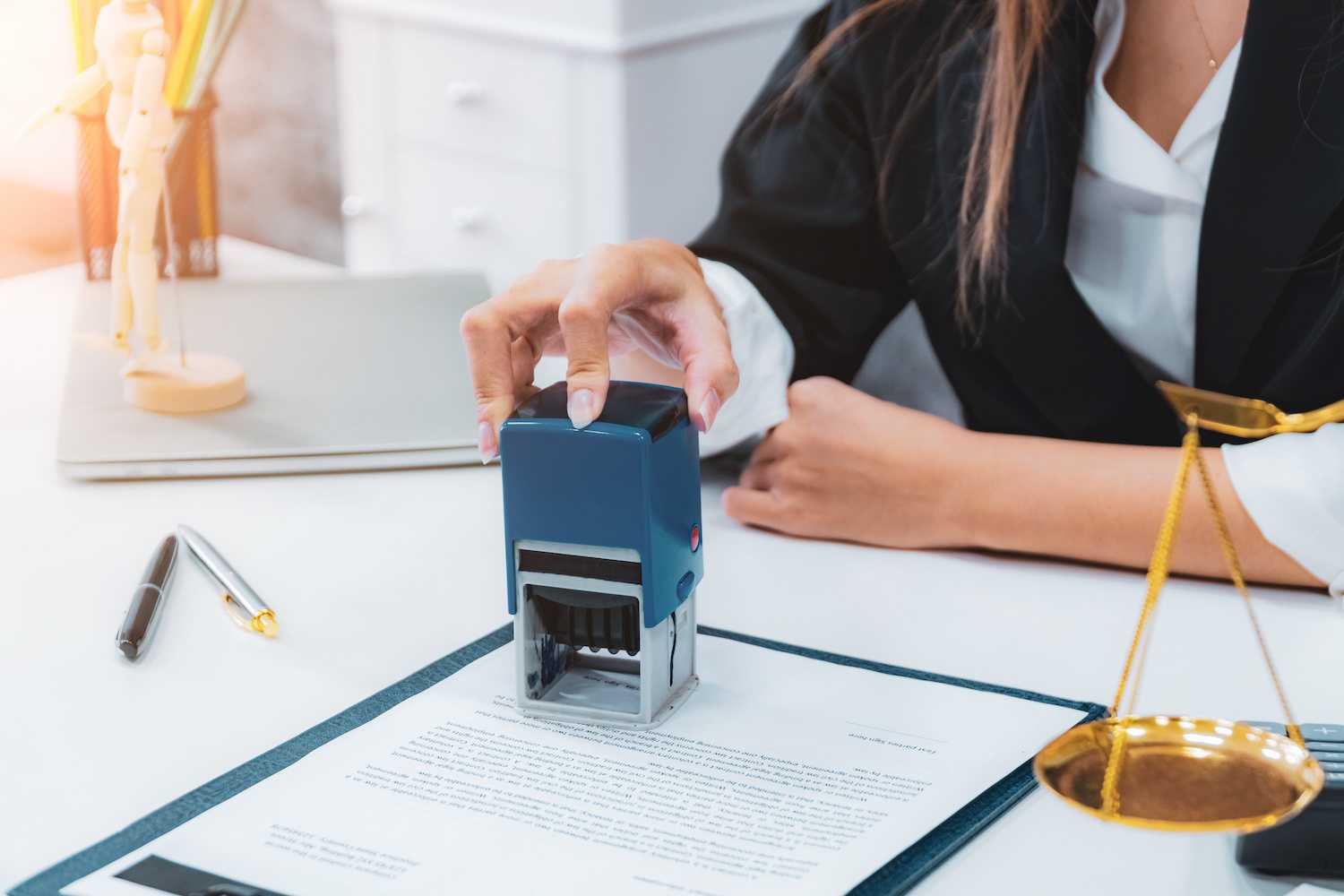What Are The Duties Of A Personal Representative In An Estate?

By Nicholas Marouchak
18 March 2021 - 10 min read
We’re introducing a new word here of Personal Representative.
Personal Representative means either the executor (if there is a will) or administrator (if there is no Will or the Will doesn’t appoint an executor).
The Personal Representative has certain responsibilities under law.
The main responsibilities are to collect the assets, pay the debts and distribute the inheritance to the beneficiaries.
The Personal Representative needs to make sure they follow the laws.
Responsibilities of Personal Representative
Here is a list of duties and responsibilities that the Personal Representative needs to be aware of.
- Act promptly. In most cases, there is an expectation that the financial affairs of the estate are finalised within one year after death.
- Apply for a Grant (if required) promptly. In some States, there is a deadline of 6 months after death to apply (such as NSW).
- Treat all beneficiaries equally and do not favour any beneficiaries over others.
- Make sure the debts of the estate are paid before money is distributed to the beneficiaries . But be careful with this as there are some assets which cannot be used to pay off general debts (such as proceeds from superannuation and life insurance). We go into this in more details in later steps.
- Act prudently and issue any notices which are required to be issued (discussed in later steps).
- Ensure that all estate assets are collected. This including conducting reasonable searches.
- Make reasonable enquiries and searches for a Will and assets.
- Keep beneficiaries updated.
- Keep creditors (people who are owed money by the estate) updated.
- Follow the law.
- Notify organisations of the deceased’s passing.
- Ensure that the beneficiaries receive their lawful inheritance.
- Protect assets from being accidentally destroyed, lost or stolen.
- Keeping accurate records expenses, assets, debts and steps taken
- Conducting and defending legal claims if needed.
- Running a business (if needed)
- Not mix estate property (and money) with your money. Keep separate bank accounts (e.g. a bank account in the name of the estate).
When in doubt, it’s best to get legal advice.
Estate Banks Accounts Explained
In this step, you should open a new bank account in the name of your loved one’s estate.
The reason is to prevent mixing of estate money with your personal money.
Most banks and credit unions in Australia allow the Personal Representative to open a bank account for a deceased estate.
It will be a bank account named something like “Estate of the late xyz (their name)”.
Any cheques, money, refunds made out to their estate can be deposited in the estate bank account.
Having an estate bank account also makes sure the Personal Representative does not breach their legal duty to ensure they don’t mix estate money with their personal money.
Setting up an estate bank account is not difficult. Typically, you will need to provide information including the Personal Representative’s name, their dates of birth, address where statements can be sent, and certified copy of the Will or Grant.
Having an estate bank account will make it far easier to deposit and withdraw estate funds.
For example, if you need to sell an asset, deposit the proceeds of sale into the estate bank account.
It will also help with keeping track of everything, and with any tax issues.
Once the inheritance is distributed to the beneficiaries, the account can be closed.

A Guide to Collecting The Estate Assets
If you have applied for a Grant, wait for it to be issued by the Court. Once the Grant is issued, you can do this step.
When the time comes, the Personal Representative should collect the assets into the estate.
You need to make sure you collect all other money owed to your loved one, such as employment entitlements, unpaid wages, reimbursement from insurances, tax refunds etc.
The easiest way to collect the assets is to have estate money (cheques, payments, reimbursements etc) deposited into the estate bank account.
Some assets, you may need to take physical possession off (e.g. personal items, motor vehicles etc).
Keep Records
You will need to keep a record of all the income, assets and expense of the estate because you need to account to the beneficiaries later on.
Collecting Super
With super, you need to speak to the Super fund to find out if the super money will be paid to the estate or not.
If it’s paid to the estate, the Personal Representative needs to fill out all the forms to get the super money paid to the estate bank account.
Others Checks
Contact organisations and professional providers that your loved one had relationships with to see if the estate is owed money from them, or owes them money.
It’s also good idea to check for any unclaimed superannuation.
Make enquiries outside of the State to see if any assets are held there.
Get up-to-date statements to make sure you have the full pictures of the assets and debts.
How to Memorialise social media accounts
A lot of people, particularly young people, have many photos posted on their social media. They might also have statuses and memories on their pages. They often act as a modern photo album.
If you delete a deceased person’s social media accounts, you may lose access to the photos and memories.
By memorialising the account, it stops people from using the account, but also stops the provider from deleting the account due to inactivity. It allows friends and family to remember the good times and access the photos any time they want.
For information on specific platforms, you can use the following links:
Paying Estate Debts
You will need to ensure that the deceased’s debts are paid before you distribute money to the beneficiaries.
Life insurance & super
Proceeds of life insurance and superannuation death benefits paid to the estate are not required to be used to pay off general debts of the deceased person. This is a protected asset.
Secured debts
Secured debts are a special type of debt which is attached to property. For example, a mortgage which is registered on real estate or a car loan where the debt is registered against the vehicle.
If the debt is secured, keep the lender up-to-date in regards to the estate administration and if required, maintain repayments (if you can’t get an extension).
The lender may have the ability to reclaim the property (such as a house or the car) if repayments are not maintained.
If a beneficiary is given an asset with a secured debt (such as a house with a mortgage on it), generally, the beneficiary takes the asset along with the secured debt. Generally, if the beneficiary cannot service or take on the secured debt, the asset may need to be sold.
Unsecured debts
Unsecured debts are debts which are not attached to any particular property. These are generally credit cards and personal loans.
Unsecured debts of the deceased person will only usually be paid from the money from the deceased person’s estate (with the exception of super and life insurance mentioned below).
If there is not enough money in the estate to pay off the debts of the deceased person, then the estate might be bankrupt and you should get legal advice.
Generally, debts need to be paid off first before you can distribute anything to the beneficiaries (with the exception of super and life insurance).
You can also speak with creditors and see if they are willing to reduce or write off the debt.
Funeral and administration debts
Each State and territory will have a specific order of how unsecured debts are paid.
Debts related to your loved one’s funeral and to finalising their other affairs are usually paid ahead of other unsecured debts.
Keep Records
You should keep a full record of all debts of the estate.
The Personal Representative may be held personally liable if a creditor suffers a loss due to a debt not being paid correctly.
Obligations With Taxes
The Personal Representative must be aware of their taxation obligation.
You might need to lodge with the Australian Taxation Office (ATO) the deceased’s tax returns for the financial year of death (or any other previous years that were not filed).
If their estate receives income, such as interest, rent, dividends or business profits, the estate may have to file its own tax return (in addition to your loved one’s personal tax return).
You should get advice from a tax accountant to ensure that the tax affairs of the estate are properly managed.
How do I get access to Tax information?
Tax officers are only allowed to release information about your loved one’s estate to the Personal Representative. In most cases, this is the executor or administrator of the estate. It can also be a tax agent, a business activity statement agent, or a legal practitioner who has been hired by the personal legal representative to assist in the estate.
To request access, you can write to the ATO, or call them 13 28 61.
What is an Unofficial Death Notification?
An unofficial death notification advises the ATO that the deceased has passed away.
It stops mail being issued until official notification of death, to make sure no valuable information is lost.
You can phone the ATO on 13 28 61 to give an unofficial notification of a death. However, only an authorised person or next of kin can give notice.
Official Death Notification
The official death notice is what the ATO needs to legally start the process of finalising your loved one’s tax affairs (such as lodging any unlodged tax returns in the year of passing).
You can notify ATO online or via post Online Form .
After completing, you must have an ‘interview’ at Australia Post to present your printed summary and supporting documents proving death. You must do this within 30 days of submitting online notice. If there is more than one Personal Representative, each needs to be added as an authorised contact, and each will need to complete and submit their own online form.
If you are notifying the ATO via post you can use this link Post Form.
Lodge completed form and certified copies of documents to the address on the form. Make sure to get certified copies from a JP as you WILL NOT get the forms back.
Lodging Final Tax Return
If you are the Legal Representative of the estate, you usually need to lodge a tax return for the deceased from 1 July until the date of death (this is known as a date of death tax return).
The obligation to file tax returns generally continues until the inheritance is distributed to the beneficiaries, meaning that you might have to lodge more than one if the finalising of the estate spans more than one financial year.
A date of death tax return will need to be filed if your loved one;
- had tax withheld from the income they earned,
- earned taxable income exceeding the tax-free threshold,
- had tax withheld from interest or dividends because no TFN was quoted to the investment body and or lodged tax returns in prior years (that is, for income years before the income year in which they died).
If a date of death tax return is not required, complete and send to the ATO a non-lodgement advice, listing “DECEASED” as the reason.
The Personal Representative, you should keep enough money in the estate to cover the date of death tax return, as well as any tax incurred during their life that has not yet been paid.
Estate Tax Return
Your loved one estate may need to lodge its own tax return (separate to a final tax return) if it is receiving income after their death, e.g. rent, dividends from shares, earning business income etc.
Waiting Periods
You may come across beneficiaries who are very eager to have their inheritance given to them as soon as possible.
Remember, do not distribute the inheritance to the beneficiaries too early, as you might be held personally liable.
Each State has different rules for waiting periods before distributing the inheritance to the beneficiary (usually 6 months).
These waiting periods give creditors the chance to make a claim, or to give people a chance to properly challenge the estate.
Notices
Before distributing anything to beneficiaries, you need to make sure you have issued the correct notices. Each State has different rules about this.
Distributing to beneficiaries
When everything is done, you can distribute the inheritance to the beneficiaries.
It’s good practice to get the beneficiaries to sign a document stating:
- They have received their inheritance;
- They will release you from all claims (e.g. not sue you).
